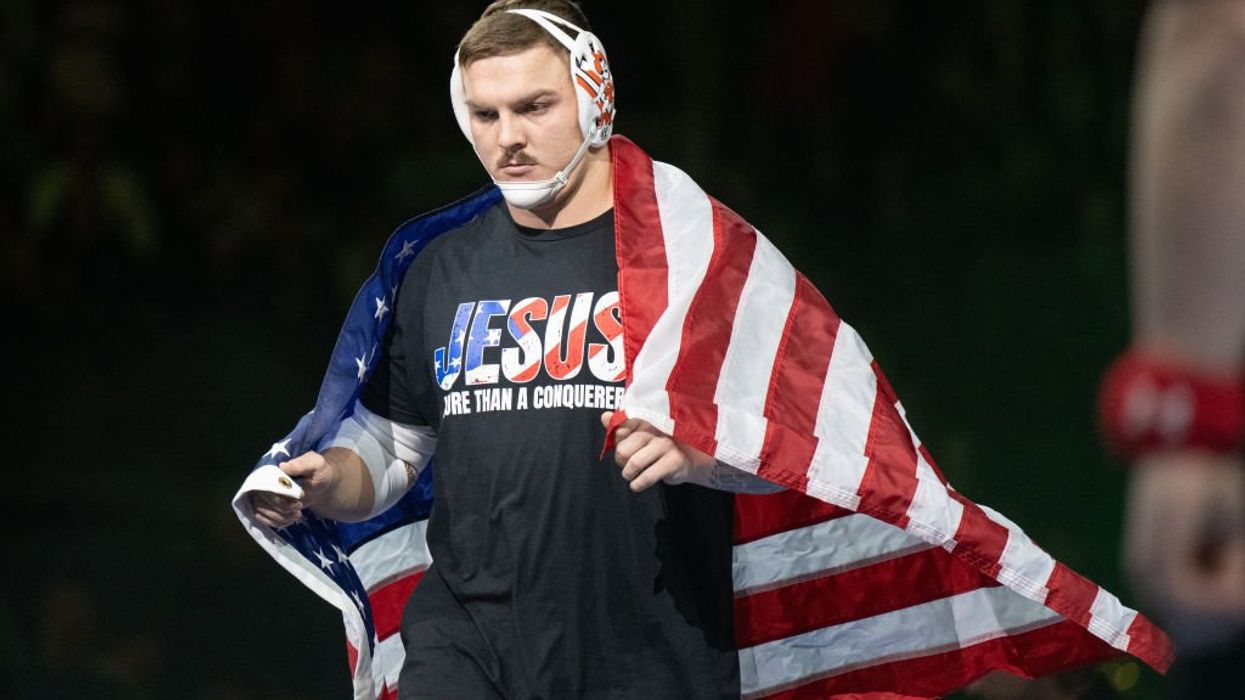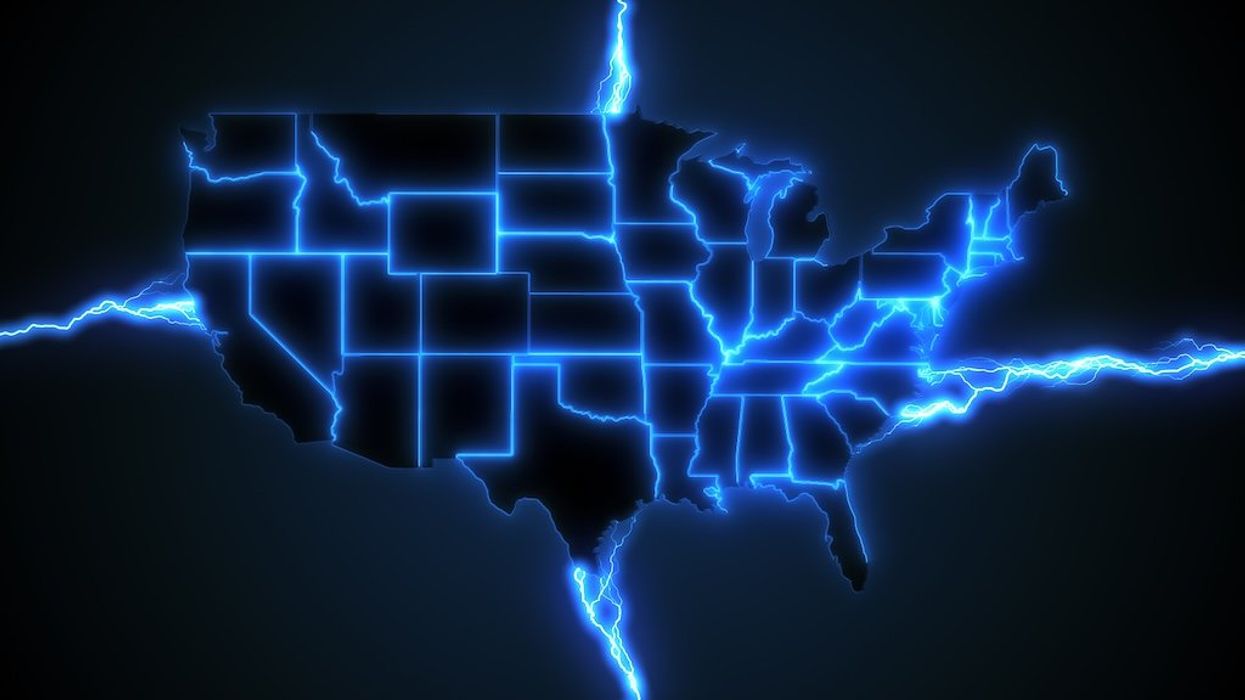
© 2025 Blaze Media LLC. All rights reserved.
"I wouldn’t call it journalism."
Is it ever permissible to lie to get the truth? This is a perennial question of moral philosophy and religious thought, but one that also bites into the very core of undercover journalism--an issue that's been in the news lately, with the work of the controversial, conservative filmmaker James O'Keefe and pro-life activist Lila Rose making national waves.
You may recall that Lila Rose, right, sent undercover agents to a Planned Parenthood clinic in New Jersey. The agents, posing as a pimp and prostitute couple, taped their interaction with a Planned Parenthood rep who eagerly gave the couple advice about procuring contraceptives and STD tests for underage sex slaves. O'Keefe, below, has been responsible for many undercover ambushes. The most famous one confirmed that certain members of ACORN were legally-challenged. The most recent one exposed that certain executives at NPR are mentally-challenged (which, of course, is not a crime).
These undercover videos beg an important question: can you misrepresent yourself in pursuit of some higher aim? Does the greater good ever allow you to lie?
Before you answer that question, think about this example, some version of which has been debated in many classrooms across the country. The scene is Germany during World War II. You are a German and you are hiding Jews in your attic. Knock, knock, knock on your door: it's the Nazis. Do you lie to them about who's inside in order to save the innocent people hiding upstairs?
Pretty obvious answer, right? OK, try this one: you're an intrepid journalist and you know that your grocery store is selling unsanitary meat to unassuming customers. You want to expose the store--in the name of public health and safety!--so you falsify information about yourself on a job application to the supermarket, you don't disclose your true profession or aims, you work there for a while, get all of the information you need about the bad meat, and then write up a story that will make national headlines. (This really happened, by the way, a few years ago.)
Or, for a more recent example: how about an atheist journalist infiltrating Jerry Falwell's church for the purpose of writing a tell-all book about evangelicals? You can watch the author, Gina Welch, discuss the ethical dilemmas of making friends with the churchgoers, while deceiving them, below. "I felt toxic," she said. "I was so upset about not only what I was doing but the fact that the revelation that it was morally problematic happened so late in the process." Nonetheless, she eventually wrote "In the Land of Believers: An Outsiders Extraordinary Journey into the Heart of the Evangelical Church." Ethical?
It's a tough issue and here's why: journalists define themselves--indeed, pride themselves--on being truth tellers and truth seekers. What does it do to their credibility, then, to--lie? Fred Barnes, an editor at The Weekly Standard who has devoted his life to reporting and writing, tells me that "It's dishonest for anyone in journalism to pretend to be someone they're not."
But this is exactly what Ken Silverstein did in 2007 as a writer for Harper's magazine. He posed as a fake businessman to reveal that a couple of DC lobbying firms are influential and amoral actors in Beltway politics. At the time, media referee Howard Kurtz threw in a flag: "no matter how good the story, lying to get it raises as many questions about journalists as their subjects."
Tunku Varadarajan, the editor of Newsweek International and a fellow at the Hoover Institution, concurs. "Any piece of journalism which includes material obtained by a journalist misrepresenting himself to an interviewee, or by pretending to be a person that he is not, is, in my view, ethically suspect."
Still, Varadarajan can conceive of an exception to the rule, where "information of great public import--or some higher truth--can only be acquired by misrepresentation." But even then, the undercover journalist "has to be assumed to be guilty of an ethical breach unless he can make a morally convincing--even irrefutable--case to the contrary."
Journalistic ethics expert Robert Steele of the Poynter Institute has created a set of six rules to help journalists make that morally convincing case. If the journalist fulfills each and every rule, then he is in morally safe waters. The full rules appear here, but they include: "the information obtained [must be] of profound importance," and undercover reporting is permissible only when "all other alternatives for obtaining the same information have been exhausted."
With that in mind, do Lila Rose and James O'Keefe's meet that moral bar? Steele says no. Speaking of Rose's Planned Parenthood sting, he tells me, "it was not journalism. It was an activist-generated hoax that was not credible in motive, technique nor revelations." Journalists, he tells me, must "seek the truth and report it as fully as possible," they must "minimize harm...be accountable...[and] act independently." O'Keefe and Rose do not qualify on that last point, it would seem, because "independence means the journalist should not be unduly influenced by other factors including financial interests, competition, personal beliefs, special interest groups, etc."
Interestingly, Barnes, who took a sterner view of undercover journalism than Steele, is more lax when it comes to Rose and O'Keefe's endeavors. "It's dishonest for anyone in journalism to pretend to be someone they're not. This rule doesn't apply to folks outside the profession," he told me in an interview.
Speaking of what Rose did, Barnes says, "I'm okay with it. This was undercover work done by someone not in journalism but in politics." And he takes a similar view of O'Keefe, who Barnes says "has succeeded in exposing people that I'm happy to see exposed. Permissible in the NPR case?" Barnes asks. "Yes, for him, but wouldn't have been for me. I wouldn't call it journalism. It was a political hit job and a quite clever and successful one at that."
Unethical for me, but not thee?
Roger Kimball, the editor of The New Criterion, agrees with the distinction Barnes draws, but notes that "my own practice is to be above board: to tell people who I am and what I want."
"In my view," Kimball says, "the method's employed by O'Keefe are, so far as I know, legitimate. In effect, he conceals in order to reveal." Weighing the moral issues, Kimball adds that "the more destructive deception, in my view, is practiced by his targets [like ] ACORN [which] pretended to be something quite other than it really was." In other words: the end justifies the means. "People are skittish about the phrase 'the end justifies the means,'" Kimball tells me, "They shouldn't be. It all depends on the end. And, of course, the means."
But this flies in the face of an absolutist morality that prohibits lying always. Aine Donovan, an ethics professor at Dartmouth College, says that it is "never" permissible to lie in pursuit of the truth. We, after all, live in a culture of trust. It would be impossible to live in a culture in which we never knew whether we were being lied to or not. Could there be a distinction between our professional ethics, and our personal morality, though? The Poynter Institute's Robert Steele doesn't think so. "Honesty is a universal ethical value that applies to all of us in our personal and professional lives. We should be honest with other people about our identity and our intentions unless," he adds, "there is a significant, overriding value that trumps honesty." Think of the German hiding the Jews.
"That is not a sign of moral bankruptcy," says J.P. Freire, an editor at the conservative Washington Examiner, speaking of O'Keefe's videos. Like Steele, he begins with the question of what journalism is, but Freire ends in a different place: "At its core, journalism is about serving an audience with new information in a way they want to consume it. O'Keefe's found his formula for it. It's just not mine." On his website, O'Keefe describes himself as "an investigative journalist and filmmaker."
The need for a universal ethic, that guides both journalists and activists in their professional and personal lives, is needed now more than ever as the distinction between journalist and activist blurs. Antony Thomas, a British documentary maker, has spent a lot of time thinking about what he calls "citizen journalists," and has even created a chilling documentary that explores "citizen journalism." This is journalism 2.0. It's what happens when ordinary citizens with cellphones go out into the world and record what they see. They are not trained reporters, they are beholden to no editors, and yet their amateur footage--think Wisconsin, Egypt, or Iran--makes it onto to YouTube, Twitter, and--eventually--the major national networks and newspapers.
If Lila Rose and James O'Keefe are citizen journalists, shouldn't they be held to the same rigorous ethical standards as everyone else trying to gain a foothold in the marketplace of ideas and truth?
Want to leave a tip?
We answer to you. Help keep our content free of advertisers and big tech censorship by leaving a tip today.
Want to join the conversation?
Already a subscriber?
more stories
Sign up for the Blaze newsletter
By signing up, you agree to our Privacy Policy and Terms of Use, and agree to receive content that may sometimes include advertisements. You may opt out at any time.
© 2025 Blaze Media LLC. All rights reserved.
Get the stories that matter most delivered directly to your inbox.
By signing up, you agree to our Privacy Policy and Terms of Use, and agree to receive content that may sometimes include advertisements. You may opt out at any time.



